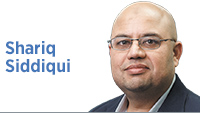Subscriber Benefit
As a subscriber you can listen to articles at work, in the car, or while you work out. Subscribe Now This winter season people will find different ways to celebrate time together. Regardless of your faith, December has become a time of family and philanthropy. Research on giving in the United States suggests that this is likely the most important month for charitable giving. But could we find ways to amplify our social good beyond our charitable dollars? Can we go beyond the “warm glow” of charitable giving and determine to make the world a better place this winter? Can our winter or New Year resolution be focused on social good that includes not only charitable giving but a broader definition of philanthropy?
This winter season people will find different ways to celebrate time together. Regardless of your faith, December has become a time of family and philanthropy. Research on giving in the United States suggests that this is likely the most important month for charitable giving. But could we find ways to amplify our social good beyond our charitable dollars? Can we go beyond the “warm glow” of charitable giving and determine to make the world a better place this winter? Can our winter or New Year resolution be focused on social good that includes not only charitable giving but a broader definition of philanthropy?
For example, the current environmental situation is dire, to say the least. The UN Climate Change News stated that in 2020, climate shocks forced 30 million people to flee their homes. In 2021, extreme weather caused about $120 billion in insured losses. Scientists have proven time and again that environmental behaviors stem from human behavior, so it is essential to switch to pro-environmental behaviors. Pro-environmental behavior also known as “eco-friendly behavior” is a form of prosocial behavior that ultimately benefits all of humanity and is essential for addressing climate change. These behaviors–philanthropic in nature–go beyond monetary donations.
It is this concern for the environment that lead Indiana University to launch the Environmental Resilience Institute. In addition, the Lilly Family School of Philanthropy invested in a faculty position to focus on the intersection of philanthropy and environmental resilience; and the Muslim Philanthropy Institute at the Lilly Family School of Philanthropy launched a new initiative to learn how faith can help in environmental resilience.
Pro-environmental behaviors can be carried out in the private domain in the forms of recycling, green purchase, saving water and energy, or public domain via encouraging others to care for and protect the environment. It is evident that these behaviors have resulted in decreasing the waste of natural resources, reducing the emission level of pollutants, and weakening environmental damage.
From a Muslim philanthropy lens, voluntary action and voluntary inaction for the public good are both included in philanthropy. So, engaging in voluntary action through recycling reduces the amount of waste sent to landfills and incinerators; helps in conserving natural resources such as timber, water, and minerals; and prevents pollution and reduces greenhouse gas emissions by reducing the need to mine and process new materials. Statistically speaking, recycled plastic saves 70% of production energy. Additionally, the National Recycling Coalition reports that recycling has created 1.1 million jobs. Similarly, engaging in voluntary inaction such as not overusing water leads to the public good of having conserved enough water for current and future generations to use which in turn also reduces greenhouse gas emissions. From a Muslim philanthropy lens, we can say that voluntary action and voluntary inaction for a better environment and climate creates a unity in experience.
The ability to do good beyond our charitable giving has long been embraced as a form of philanthropy. Think about the rich tradition of volunteerism in the United States. But can we broaden our definition of philanthropy to include intentional inaction for the public good? This winter could we: Travel in ways that harm the environment less? Host family gatherings that include less waste, and use ways that cause less damage to our environment? Purchase things that have less wasteful packaging or perhaps recycle gifts?
These are all meaningful ways in which we can make the world a better place. As a Muslim, I am taught that social good does not require great wealth but good intention.•
__________
Siddiqui is assistant professor and director of the Muslim Philanthropy Initiative at the Lilly Family School of Philanthropy at Indiana University. Send comments to [email protected].
Click here for more Forefront columns.
Please enable JavaScript to view this content.
